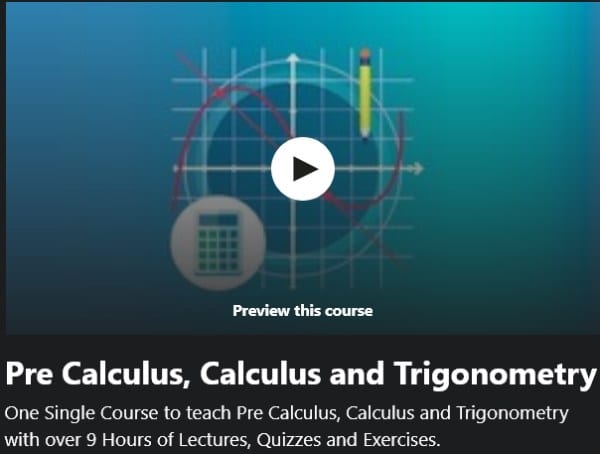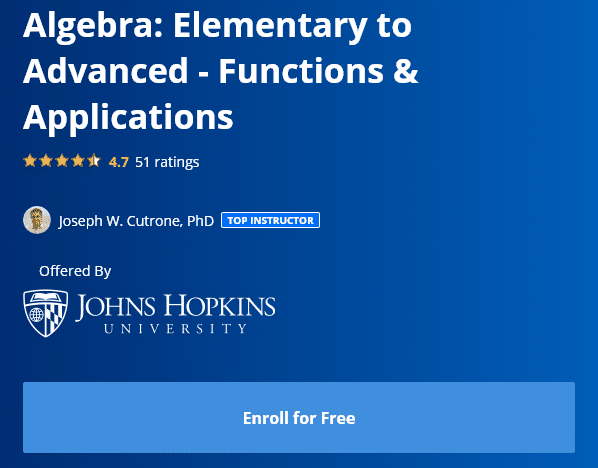AP Calculus Prerequisites: In order to be successful in AP Calculus, students should have a strong foundation in algebra and geometry. In this AP calculus guide, we will discuss the prerequisites for AP Calculus and provide some tips on how to prepare for this challenging course.
Table of Contents
AP Calculus Prerequisites
In order to be prepared for AP Calculus, students should have completed an entire course in high school algebra, geometry, and trigonometry. In addition, they should have a working knowledge of analytic geometry and elementary functions, including linear, rational, exponential, polynomial, logarithmic, trigonometric, inverse trigonometric, and piecewise functions.
Additionally, students should be able to graph functions and understand basic algebraic transformations, combinations, compositions, and inverses for general functions. By meeting these prerequisites, students will be well-prepared to tackle the challenging material covered in AP Calculus.
How To Prepare for AP Calculus
For many high school students, AP Calculus is the most challenging math course they will take. The good news is that with the right preparation, success in this class is within reach. Here are some tips to help you get ready for AP Calculus:
- First and foremost, make sure you have a strong foundation in basic algebra and geometry. If you need a quick refresher, there are plenty of resources available online or in your local library.
- Next, start practicing with calculus concepts. Many calculus problems can be solved without resorting to complicated equations. By becoming comfortable with basic concepts like limits and derivatives, you’ll be better prepared to tackle tougher problems down the road.
- Finally, don’t forget to review trigonometry. Although it may not be used as often in calculus, a strong understanding of trig will come in handy on occasion. And who knows? Maybe you’ll even find it helpful on the test.
With some hard work and dedication, you can master AP Calculus and earn college credit at the same time.
Pre Calculus, Calculus, and Trigonometry
The Pre Calculus, Calculus, and Trigonometry Online Course is a comprehensive AP calculus prep course that covers all the topics necessary to succeed in AP Calculus. The course begins with a review of Pre Calculus concepts and then builds on these concepts to introduce Calculus and Trigonometry. The course includes over 9 hours of lectures, quizzes, and exercises to help students learn the material and prepare for AP Calculus. By the end of the course, students will have a strong understanding of Pre Calculus, Calculus, and Trigonometry concepts and be well prepared for AP Calculus.
Become a Trigonometry & Precalculus Master
Become a Trigonometry & Precalculus Master is a course that covers everything you need to know to prepare for AP Calculus, from angles and circular functions to graphing and inverse trig functions. The course is designed to cover everything you need to know yet still be easy to follow, and it includes plenty of practice problems to help you master the material. With a little effort, you can make sure that you’re ready to tackle anything that AP Calculus throws your way.
Become a Calculus 1 Master
Become a Calculus 1 Master will show you how to master calculus topics quickly. This AP calculus online course is taught by an experienced AP Calculus teacher who knows what it takes to get a 5 on the exam. The instructor will take you step-by-step through each topic, providing clear explanations and plenty of practice problems along the way. By the end of the course, you will have a strong understanding of the material and be well-prepared for taking AP Calculus.
Algebra: Elementary to Advanced – Functions & Applications – Johns Hopkins
For students who are struggling with Algebra, taking a review course such as “Algebra: Elementary to Advanced – Functions & Applications” from Johns Hopkins can be extremely helpful. This course covers a variety of topics that are essential for success in AP Calculus, including solving linear, quadratic, polynomial, and exponential equations, as well as working with properties of real, rational, and irrational numbers. In addition, the course also covers the properties of a variety of functions and their applications. The material in this course is presented clearly in a concise manner, and there are plenty of practice problems to help you enhance your math skills. Whether you’re struggling with Algebra or just looking for a review, this course is an excellent way to prepare for AP Calculus.
Become an Algebra Master
The Become an Algebra Master Course will help you build the skills you need to succeed in calculus and beyond. This comprehensive course includes over 1,000 practice questions, covering everything from basic algebra to more advanced topics. By working through the course, you will develop a deep understanding of algebra and be well-prepared for any challenges you may encounter in calculus.
Become a Geometry Master
If you’re planning on taking the AP Calculus exam, it’s important to brush up on your geometry skills. You’ll need to be proficient in topics like lines and angles, polygons, circles, area and perimeter, volume and surface area, triangles, the Pythagorean theorem, congruence and similarity, and transformations. Become a Geometry Master with over 8 hours of video instruction, practice problems, and additional resources, this course will ensure that you’re well-prepared for AP calculus.
What is AP Calculus
AP Calculus is a college-level calculus course offered by the College Board. There are two versions of the course, AB and BC. AP Calculus AB covers differential and integral calculus, while AP Calculus BC covers single-variable calculus. Both courses are designed to prepare students for college-level calculus courses.
AP Calculus Overview
AP Calculus AB and BC are advanced placement courses offered by the College Board to high school students who wish to earn college credit for undergraduate calculus.
AP Calculus AB covers topics such as limits, derivatives, and integrals. The course is structured so that students will have a strong foundation in these topics before moving on to more advanced concepts.
AP Calculus BC builds on the material covered in AB, introducing new topics such as parametric equations, polar coordinates, and series. The BC course is designed for students who want to study calculus in more depth and prepare for a more challenging college-level course.
Both courses focus on preparing students for the AP Calculus exam, which is administered in May.
Students who earn a score of a least 3 or higher on the exam will receive college credit for calculus at most colleges and universities.
What does AP AB calculus cover?
- Unit 1: Limits and Continuity
- Unit 2: Differentiation: Definition and Fundamental Properties
- Unit 3: Differentiation: Composite, Implicit, and Inverse Functions
- Unit 4: Contextual Applications of Differentiation
- Unit 5: Analytical Applications of Differentiation
- Unit 6: Integration and Accumulation of Change
- Unit 7: Differential Equations
- Unit 8: Applications of Integration
What does AP BC calculus cover?
- Unit 1: Limits and Continuity
- Unit 2: Differentiation: Definition and Fundamental Properties
- Unit 3: Differentiation: Composite, Implicit, and Inverse Functions
- Unit 4: Contextual Applications of Differentiation
- Unit 5: Analytical Applications of Differentiation
- Unit 6: Integration and Accumulation of Change
- Unit 7: Differential Equations
- Unit 8: Applications of Integration
- Unit 9: Parametric Equations, Polar Coordinates, and Vector-Valued Functions
- Unit 10: Infinite Sequences and Series
Can You Skip AP Calculus AB?
It is not advisable to skip AP Calculus AB unless you have already mastered all of the topics that will be covered in the class. The College Board has designed the AP Calculus AB curriculum specifically so that students have a strong foundation in calculus before they take AP Calculus BC. Without this foundation, students may struggle with the more difficult concepts in AP Calculus BC.
Is AP Calculus Hard?
AP Calculus is a difficult course, but with good preparation, it can be manageable. Make sure to review the basic concepts regularly and to do lots of practice problems so that the material becomes second nature. Additionally, try to get a sense of how the test will be structured and what kind of questions will be asked. The more you know going into the test, the less stressful it will be. And finally, don’t hesitate to ask for help if you are struggling – there are plenty of helpful mathematics resources available both online and in person.
Is AP Calculus Necessary?
AP Calculus is not necessary to graduate high school. However, taking the course can improve your chances of getting into a good college. Colleges tend to look favorably on students who have taken challenging courses like AP Calculus. In addition, the material covered in AP Calculus can be very helpful in college-level mathematics courses. Therefore, even though it isn’t required, it is still a good idea to take AP Calculus if you can.













